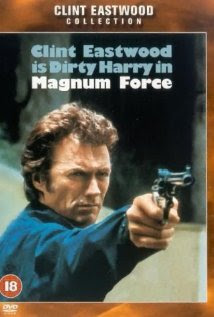"I'll tell you what made this arrest so different. I've only spent one night in jail before this. I was 16 years old, was arrested for stealing diapers and milk for my babies. I did it. They kept me for one night. I knew I was getting right out. To be locked up for 21 days away from my girls, not knowing if I was gonna get out to see them again, 21 days in a cage... I may not have all your schooling, but it seems pretty different to me!"
(Nicole Beharie as Dee Roberts)
"American Violet" features a young, African-American single mother named Dee Roberts (played by Nicole Beharie in her film debut) struggling to get by. She works as a waitress at a restaurant and her mother helps by watching her three young daughters when she is at work. She lives in the projects of Melody, Texas - a small, predominantly white town with a smaller black population that lives mostly in subsidized housing.
The film chronicles her arrest as a part of a drug sweep through her housing project (Arlington Springs) and subsequent legal battle. She is captured as a part of the sweep, though the police must look for her at her job because she was not at home during the sweep. She was arrested and assigned a public defender during her arraignment. The public defender was assigned to all of the arrestees in the Arlington Springs sweep, and subsequently urged them all to agree to a plea agreement. Dee was arrested for selling drugs in a school zone, a significant offense given that a school zone is a particularly "protected" area (more serious than selling drugs on a regular street corner). Eventually, her case was chosen by the ACLU to challenge the racially-motivated drug sweeps in this particular county in Texas. The film documents her struggles with the county district attorney, who made it almost impossible for her to get a job by telling all prospective employers of her legal concerns. She also had troubles with her ex-boyfriend, who was continually fighting her for custody of her two youngest daughters.
The climax comes during the depositions in preparation for the civil trial. Dee's attorneys (including two New York lawyers from the ALCU and a local attorney retained to "help navigate Texas courthouses") needed to find a way to demonstrate that the drug sweeps were racially-motivated, and the best way to do that was to prove that the district attorney was so blinded by racial prejudice that it would call into question the "racial neutrality" of the busts that he ordered. I don't want to give away any of the good parts, but it is an excellent look at the struggles attorneys face in proving someone's intentions or prejudices.
The film has several social goals. First, the film is intended to demonstrate that we are not a "post-racial" society, as much as we all would like to think we are. A great deal of drug enforcement is racially motivated, as most people have racial prejudices regarding drugs and drug use. Second, the film is intended to show that social class matters. When you cannot afford a good lawyer, you are not sure that you're getting the best legal advice. If you are uneducated, you don't know what "good advice" is, so it's even more difficult to get a fair shake-down. Some public defenders are exceptionally good at their jobs, but are overworked and underpaid, which will obviously affect their ability to give good quality legal advice to each person. Third, the film discusses a legal procedure that was later changed, partially due to the events depicted in the film. In Texas, grand jury indictments could be secured with corroboration of only one informant, meaning that one person could indict multiple people. In this case, one person was cornered by the district attorney and coerced into providing false testimony to the grand jury to obtain the indictments against more than 20 people, all for drugs. The audio tape that supposedly proved Dee was selling drugs is mentioned in the film as being "very hard to make out and the voice doesn't even sound female," but the testimony of one person was enough to secure a grand jury indictment. This is a serious issue, as corroboration is essential to ensure that indictments are not frivolous. In this instance, Dee's name is only added to the list because the informant's sister is the new girlfriend of Dee's ex-boyfriend, and the sister dislikes Dee and wanted her out of the picture. However, the stakes of even being indicted for drugs are very high, as an arrest for drugs - even if no charges are filed and you're later released, or you're acquitted or charges are later dropped - is viewed quite negatively by employers and others.
The film was captivating, and I would highly recommend it to everyone. I like this film for a number of reasons - and I loved it so much I show it to my students - but probably the best reason I love this movie is that it is real. I'm sure there is some sort of agenda, and that it's not completely accurate, but I know that it is at least somewhat accurate because I know that not only are minorities vastly disproportionately caught up in drug enforcement (though whites use drugs more than minorities - they just use different kinds of drugs that "are less important" to drug enforcement agents), but they are generally pushed through the system in ways that are simply unfair. This film shows that innocent people do get caught up in the mix, and that inevitably the justice system is about people, not about statistics. I liked when we are urged to remember that we are a system of people, not a system of cogs and wheels.
Note: This film was based on the true story of Regina Kelly in Hearne, Texas.



